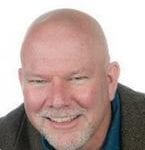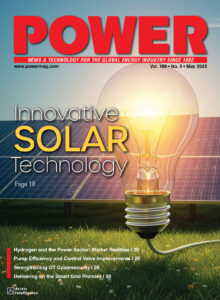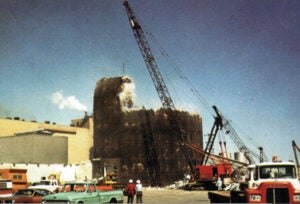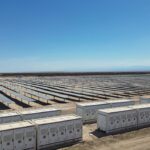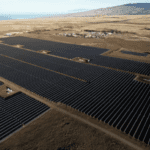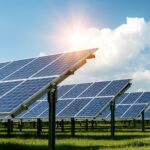Major German BESS Project Closes Financing. Energy transition bank NORD/LB announced it has closed an €87 million ($94 million) financing package with Nofar Energy for construction of a 104.5-MW/209-MWh battery energy storage system (BESS) project in Stendal, Saxony-Anhalt, Germany. The deal is the first for NORD/LB in Germany. The bank previously has signed contracts for projects in the U.S., UK, and France. Officials in March said the BESS, scheduled to enter commercial operation in 2026, is just the second large-scale storage project ever financed in Germany. The project features a first-of-its-kind tolling agreement that will protect against market volatility and secure a stable and predictable revenue stream for Nofar Energy. NORD/LB officials said the project joins a pipeline of large-scale BESS projects in Germany. The country has a goal of installing as much as 15 GW of battery energy storage capacity by 2030.
Deep Isolation Completes Nuclear Waste Disposal Project with UK Government. California-based Deep Isolation, a nuclear waste disposal technology group, said it has successfully completed a multi-year project with the UK government, marking a major step forward in proving the feasibility and commercial readiness of deep borehole disposal solutions. The Energy Entrepreneurs Fund (EEF)-9001 project, monitored by the UK Department for Energy Security and Net Zero (DESNZ), led to the manufacture of a first-of-its-kind disposal canister prototype. The project, which was launched in December 2022, was instrumental in validating Deep Isolation’s patented borehole disposal technology for spent nuclear fuel and high-level radioactive waste. Conducted in collaboration with the UK Advanced Manufacturing Research Centre, NAC International, and the University of Sheffield, the effort focused on both canister design validation and assessing the UK’s manufacturing supply chain capabilities. “This project is a game-changer for deep borehole disposal canisters,” said Rod Baltzer, CEO at Deep Isolation. “It not only validates key aspects of our technology but also advances manufacturability, cost efficiency, and supply chain readiness—paving the way for future deployments.” Officials said a key outcome of the program was the successful fabrication of two prototype canisters designed to encapsulate a pressurized water reactor spent nuclear fuel assembly for dry storage, transport, and final disposal. In parallel, Deep Isolation refined its performance models for long-term safety, leveraging corrosion resistance and post-closure gas migration studies, supported by data from a joint U.S. Department of Energy–funded project.
Australian Group Secures Financing for Large CSP Project. Vast Renewables, an Australian renewable energy company that specializes in developing clean energy solutions, recently announced it had secured as much as AU$180 million ($113.5 million) from the Australian Renewable Energy Agency (ARENA) to power South Australia’s power grid and production of renewable methanol. The funding from ARENA will be used for construction of Vast Renewable’s Port Augusta utility-scale Vast Solar 1 project as part of the port’s Green Energy Hub. Vast Solar 1 is a concentrated solar power (CSP) installation that officials said will enable renewable energy generation and support energy storage, allowing operators to capitalize on peak pricing periods and deliver power to South Australia’s grid when needed. Vast also is working with Mabanaft to deploy a co-located green methanol production facility, Solar Methanol 1, which aims to decarbonize shipping.
Solar Power Developer Expanding Business into Denmark. Alight, a Sweden-based solar power developer and independent power producer, in March said it was expanding its business into Denmark with the acquisition of the 215-MW Lidsø solar park in Lolland, Denmark. The project, developed by European Energy, will be one of Denmark’s largest solar parks. European Energy, founded in Denmark in 2004, is a global renewable energy developer with projects in 25 countries. Financial group SEB supported Alight in the acquisition with €127 million ($137 million) in debt financing. The solar park, located at Rødby Havn in Lolland Municipality, has been under construction since summer 2024, and is scheduled for commissioning this summer. Alight, founded in 2013, expanded into Finland in 2023 and now has more than 900 MW of solar power in development in that country. Warren Campbell, CEO of Alight, said, “Denmark represents an exciting opportunity for Alight. Our acquisition of the Lidsø solar park, which European Energy has done a fantastic job developing, will help meet the country’s rising electricity demand and marks just the beginning of our plans to contribute to Denmark’s energy transition. Additional strategic acquisitions and partnerships will play a key role in our expansion.” Alight officials said the company plans to further expand its footprint in Denmark and the rest of the Nordic countries through strategic acquisitions and other partnerships.
Microsoft Investing in Cloud, AI, and Energy Infrastructure in South Africa. Technology company Microsoft said it has committed to investing ZAR 5.4 billion ($274.6 million) in cloud and artificial intelligence (AI) infrastructure, including energy projects, in South Africa by 2027. The company said the investment builds on the ZAR 20.4 billion ($1.037 billion) Microsoft has already invested in infrastructure in South Africa over the past three years to establish data centers in Johannesburg and Cape Town. Cyril Ramaphosa, South Africa’s president, said, “Beyond blazing a trail in the local technology space, the longstanding presence of Microsoft in South Africa is a vote of confidence in our country and in our economy.” Brad Smith, vice chair and president of Microsoft, said, “For more than 30 years, Microsoft has been a committed partner to South Africa. This latest investment is part of our broader focus in helping South Africans build a future where technology drives prosperity and young workers have the skills they need to thrive.” Microsoft has a 34-GW energy portfolio, focused on renewable energy, spread across several countries, and is emphasizing sustainability as part of its AI growth. The company as part of its South African announcement reiterated its commitment to becoming carbon-negative, water-positive, and zero waste by 2030.
—Darrell Proctor is a senior editor for POWER.

